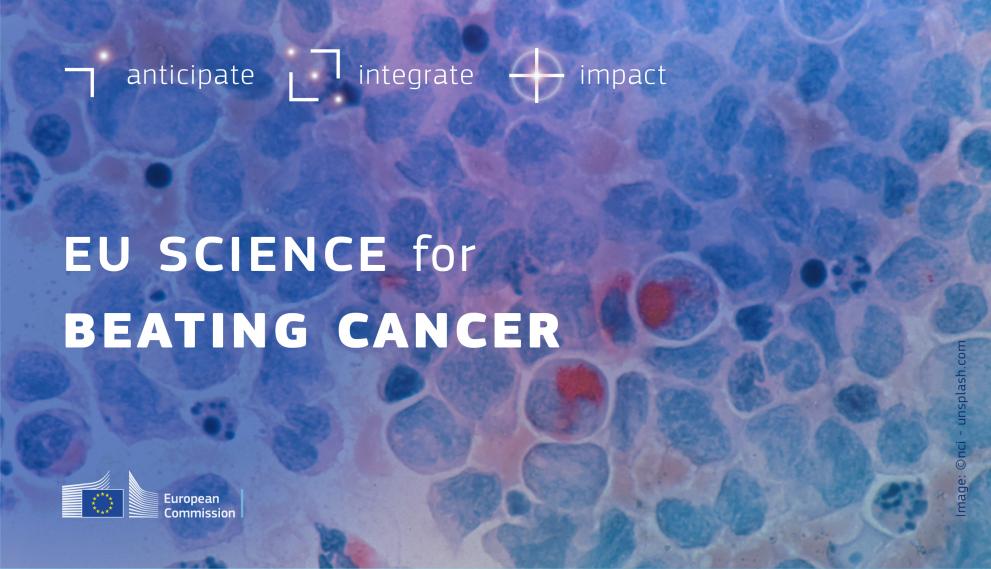
As head of Portugal’s National Program for Healthy Eating Promotion (PNPAS), Maria João Gregório has been leading efforts to improve people’s diets in Portugal for the past three years.
Maria João also co-leads a team working on reducing unhealthy food marketing to children and adolescents at Best ReMaP.
Best ReMaP is a Europe-wide Joint Action, co-financed by the European Commission, seeking to improve the quality of food supplied and consumed in Europe.
“The growing evidence on the extent, nature and effects of food marketing to children is unequivocal”, Maria João says. “Marketing influences children’s food preferences, purchases and consumption patterns”.
How is this linked to cancer prevention? Well, European data suggests that half of us will develop cancer at some point in our life. At the same time, it is estimated that over 40% of cancers are preventable.
We can significantly reduce the risk for the younger generation and for ourselves by eating and living healthily. Vaccination, screening and better air quality all have an impact too.
Regulating in a challenging environment

Portugal, like other EU countries, is working in various ways to promote healthy diets and physical activity from a young age. Protecting children from exposure to unhealthy food and drink marketing is a major part of that.
In the EU, the 2018 revision of the Audiovisual Media Services Directive provided a framework to expand, reinforce or introduce effective measures to reduce marketing pressure of food and beverages to children. EU countries are currently transposing it into their own national legislation.
In 2019, a law was established in Portugal banning adverts aimed at children under 16 of food products with high-energy value and high sugar, saturated fatty acids, trans fatty acids and salt content.
These include rules covering several channels and venues, from TV to cinemas, and from publications to the internet, social platforms and mobile applications.
However, the overall picture remains challenging. Maria João explains that “despite the evidence and clear recommendations from the European Commission and from the World Health Organization, children and adolescents are more and more exposed to wide spread and compelling marketing techniques and content”.
Best ReMaP, and in particular the work package on food marketing, aims to combat this by having “more European Member States with statutory measures, as these are proven to be the most effective in protecting children from the harmful practices of marketing”.
One explicit goal of Maria João’s team at Best ReMaP is to provide Member States with tools and support to promote effective action on marketing restrictions.
There are several challenges to overcome, especially since implementing any solution requires multi-stakeholder action.
This includes monitoring and enforcing the rules in an environment where much of the marketing happens online and on social platforms, as well as securing the political commitment to regulate, and avoiding undue influence of private interests.
A toolkit to limit unhealthy marketing to minors
In response to these challenges, the JRC has developed a marketing toolkit to help countries as they develop and update codes of conduct in this area. It provides a checklist of the main aspects that a marketing code should include and it offers practical guidance for each of the aspects included.
Maria João explains that “the JRC toolkit is a crucial tool for us at Best ReMaP as we develop guidance for marketing Codes of Practice.
The toolkit also includes the JRC database with thorough mapping of existing food, non-alcoholic, and alcoholic beverages marketing-related measures and policies.
This dataset was of great importance for the mapping exercise of the existing measures to restrict food marketing to children in European countries that we performed”.
The toolkit was developed after a thorough mapping of existing statutory, co- and self-regulatory marketing codes, and following discussions with various stakeholders, including those from Member States, WHO Europe and UNICEF.
Building comprehensive food marketing codes is crucial, especially since new marketing techniques emerge continuously.
The toolkit provides guidance to ensure that marketing codes can protect all children from the harmful impact of marketing. This will enable them to achieve healthier diets and lifestyles throughout their life.
This is a key part of creating healthier food environments and addressing the increasing burden of cancer on our societies and economies.
More information
More information on the effect that marketing has on children and adolescents, in terms of changes to food knowledge, attitudes and behaviour, diet, and health, can be found at the Health Promotion and Disease Prevention Knowledge Gateway.
The Knowledge Gateway provides reliable, independent and up-to date facts on topics related to promotion of health and well-being.
As well as the information on marketing of food and non-alcoholic beverages, the Knowledge Gateway has details about the prevention of non-communicable diseases such as cancer, and many other topics.
Related Content
Details
- Publication date
- 24 January 2022
